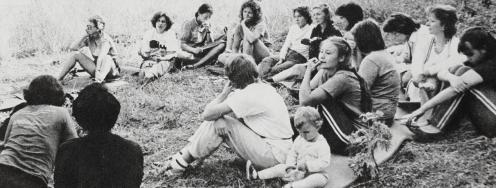Time for Serious Negotiations with Iran
On the radar: Opportunity to break the impasse; Moscow’s stonewalling; Israel’s yellowcake buy; Re-classifying nuke numbers; HEU out of Hanoi; NPT turns 45; and “Could Nuclear Weapons Save the Elephants?”
On the radar: Opportunity to break the impasse; Moscow’s stonewalling; Israel’s yellowcake buy; Re-classifying nuke numbers; HEU out of Hanoi; NPT turns 45; and “Could Nuclear Weapons Save the Elephants?”
July 2, 2013 | Edited by Benjamin Loehrke and Alyssa Demus
Negotiations - “A shift in circumstances in Iran has created a new opportunity to resolve a dangerous impasse over that country’s nuclear program. The Obama administration should move swiftly to test whether Iran’s relatively moderate president-elect is serious about brokering a deal over the program,” writes The Boston Globe in an editorial.
--It’s unclear if Iran and the U.S. are ready to agree to a deal. However, “To give diplomacy the best chance of success, the White House needs the ability to roll back sanctions that are already in the pipeline, or impose new ones should they be deemed necessary. Congress should not interfere by imposing sanctions of its own...To show good faith, [Iran’s newly elected President Hassan Rowhani] must clear up questions surrounding Iran’s controversial nuclear program.” Full article here. http://b.globe.com/12E73fe
Sanctions - “Iran says new U.S. sanctions will complicate nuclear issue” from Reuters. http://reut.rs/16LVbMN
Welcome to Early Warning - Subscribe to our morning email or follow us on twitter.
--Have a tip or feedback for the editor? Email earlywarning@ploughshares.org earlywarning@ploughshares.org. Want to support this work? Click here.
Interests and reductions - Russia has found a lot of ways to express disinterest in a new round of arms control. But Moscow’s recent positions don’t hold much water, write Steven Pifer and Michael O’Hanlon. “Further nuclear cuts should be in each side's interest because it will reduce the nuclear danger, allow cost savings, and by cutting U.S. and Russian arsenals further, it would better position those countries to urge others not to build up nuclear weapons. But pursuing such reductions will require that the Kremlin show some creativity in its thinking instead of just seeming to look for reasons not to engage.” Full post in The Moscow Times. http://bit.ly/120UJHh
Israel’s yellowcake - “In mid-July 1964, the State Department and the CIA sent a joint message asking the U.S. embassies in Argentina and Israel to check out an unverified intelligence report. They wanted to know whether the Argentines had agreed to sell Israel some 80-100 tons of uranium oxide, or ‘yellowcake,’ an essential product for fueling a nuclear reactor and thereby producing plutonium that can be used in weapons,” write William Burr and Avner Cohen in Foreign Policy.
--The National Security Archive and the Nuclear Proliferation International History Project just release 42 declassified documents that demonstrate how Israel sought materials for its nuclear weapons program and how other international players viewed Israel’s program. Article and links to the documents here. http://atfp.co/15dB3UH
Back in the vault - In 2010, the Department of Defense disclosed the total number of warheads in the U.S. nuclear arsenal for the first time ever. That figure is once again classified. In response to a recent Freedom of Information Act request from the Federation of American Scientists, requesting “records indicating the current size of the stockpile, the Pentagon said that the requested information was exempt from disclosure because it is classified under the Atomic Energy Act,” writes Steven Aftergood of the Federation of American Scientists at Secrecy News. http://ow.ly/mAija
Nuclear security - The U.S. and Russia have removed all highly enriched uranium from Vietnam, as part of a global effort to remove and secure fissile materials. Vietnam is the 11th country to have all of their fissile materials removed in the last four years, reports Fredrik Dahl at Reuters. http://ow.ly/mAjGV
What goes up... - “A Russian Proton-M rocket carrying three Glonass satellites veered off course seconds after its launch from Kazakhstan’s Baikonur space center early Tuesday, crashing in a large fireball.” Video from RIA Novosti. http://bit.ly/13jgPuY
NPT at 45 - Forty-five years ago yesterday, the U.S. and dozens of other countries signed the nuclear Nonproliferation Treaty (NPT). Daryl Kimball at reflects on the trials and successes of the treaty and offers insight on how to strengthen it. From Arms Control Now. http://bit.ly/16LV2cj
Tweet - @globalzero: Check out the "Near Misses" section of our website for examples of nuclear weapons being lost, stolen, or almost used. ow.ly/lZVc1
Speed read -
--”North Korea appeals for direct talks with US; South says it’s up to Pyongyang to make 1st move” from AP. http://wapo.st/11dpWfl
Events:
--U.S.-Russia Plutonium Disposition: Adventures with MOX." Jeffrey Smith, Douglas Birch, Frank von Hippel. July 9, 2:00-3:30 AM. Carnegie Endowment. Details here. http://ow.ly/my1RY
--"10th Anniversary of the Proliferation Security Initiative." Ryszard Schnepf, Rebecca Hersman, Vann Van Diepen, and Susan Koch. July 9, 3:30-5:00 PM @ CSIS B1C Conference Room. Details here. http://ow.ly/my35J
--"Institutional Roadblocks to Deterrence Stability in South Asia." Polly Nayak, Independent Consultant, and Lt. Gen. Vinay Shankar ret. July 11 12:30-2:00 PM @ Stimson Center. Details here. http://ow.ly/my3BW
Dessert:
Nuking endangered species - “Researchers have come upon a new tool in the fight against poaching of elephants, rhinos, hippos, and other endangered wildlife: nuclear weapons.” Hundreds of nuclear tests from the 1950’s dispersed radioactive isotopes of carbon that were absorbed by “plants, animals, and whatever tusks, teeth, and horns they might have.” Since countries ceased or slowed atmospheric testing in the sixties, carbon-14 levels have been falling, and less of the particles are being absorbed by today’s endangered animals. The higher the level of carbon-14, the older the tusk.
--Using such data could allow scientists to date materials from endangered species, and will tell governments whether the originating animal was poached recently or if the tusk predates laws banning poaching. Eoin O’Carroll from Christian Science Monitor has the story. http://ow.ly/mArk9



